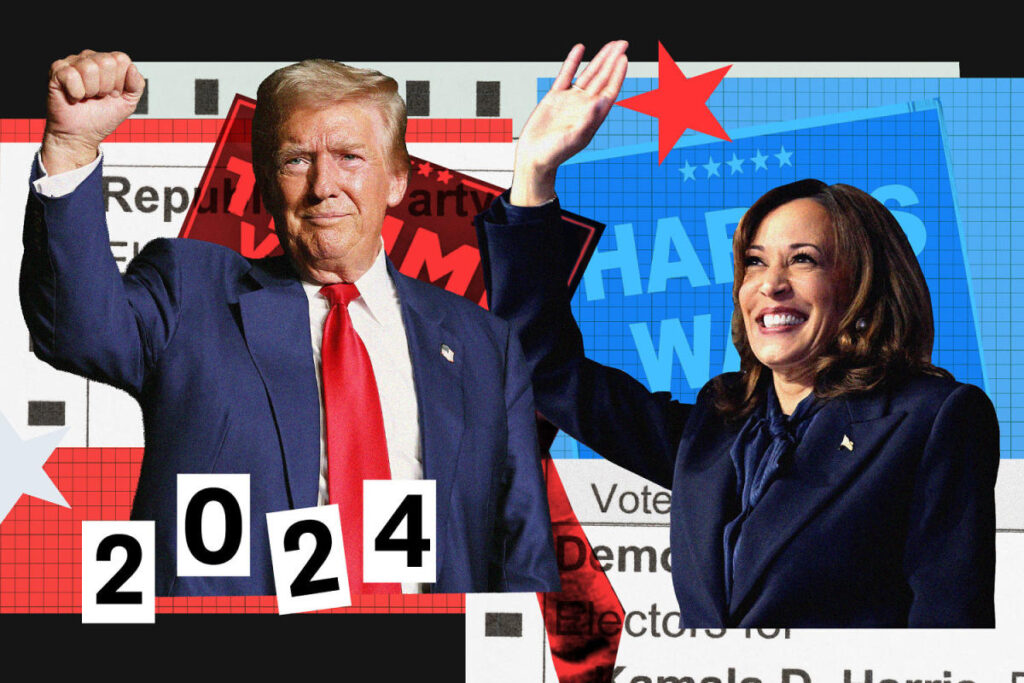As Election Day unfolds, both Vice President Kamala Harris and former President Donald Trump project a sense of confidence as they vie for the presidency. With millions of Americans heading to the polls, this day signifies the culmination of a tumultuous campaign era that saw notable shifts in party leadership, particularly with President Biden opting out of the race. Harris, who has become the Democratic frontrunner, experienced an unexpected ascent amid ongoing controversies, including Trump’s persistence in campaigning through multiple assassination attempts and a criminal conviction. The electoral focus is honed on seven battleground states: Arizona, Georgia, Michigan, Nevada, North Carolina, Pennsylvania, and Wisconsin. Voter sentiment reflects a tight competition, with recent polls suggesting that outcomes could lean either way, all within the margins of error.
At separate rally events leading up to Election Day, both candidates projected optimism about their electoral prospects. Harris gathered support at the iconic Philadelphia Museum of Art, invoking motivation by asserting, “The momentum is on our side.” She plans to spend election night at her alma mater, Howard University, while Trump rallied supporters in North Carolina and Michigan, declaring, “we’re way leading” in an effort to rally his base. Interestingly, the small township of Dixville Notch in New Hampshire recorded a rare tie with three votes for each candidate. However, the broader national results may take time to materialize, as some regions anticipate delays due to ballots that are yet to be counted, further complicating potential disputes over the election results.
In conjunction with the election, news breaks concerning a serious security threat linked to Russia. A Western official has indicated that Russian operatives were behind a campaign to plant incendiary devices at logistics hubs in Germany and the UK with intentions to disrupt air traffic. This revelation adds a layer of urgency to the election, as the U.S. has heightened air cargo screening efforts, especially with concerns about threats aimed at flights destined for North America. Polish authorities have made several arrests connected to the incident, highlighting the need for vigilance in light of these developments.
Meanwhile, Tropical Storm Rafael is gaining attention as it is set to intensify into a hurricane, prompting storm watches in parts of Florida. The trajectory of Rafael, following its path over Jamaica and toward the Cayman Islands and Cuba, raises concerns for residents preparing for potential impacts. The National Hurricane Center has forecast that the storm could strengthen further, indicating the need for preparedness among communities that may be affected later in the week.
In another significant development, Boeing machinists have recently concluded a seven-week strike after employees voted in favor of a new contract that promises substantial wage increases and bonuses. Approximately 33,000 workers had participated in the strike, which stemmed from negotiations over better compensation and benefits. The successful passage of the contract is a crucial relief for Boeing’s new CEO, who is simultaneously navigating ongoing safety and manufacturing challenges that have beleaguered the company.
Additionally, interest grows around social issues, such as the emerging plans for a Women’s Professional Baseball League, aimed to establish a competitive platform for female athletes by 2026. However, organizers face the challenge of attracting sufficient talent, as the disparity in participation rates between girls’ softball and baseball remains stark. While the vision for a professional league reflects a commitment to expanding women’s representation in sports, officials are exploring strategies to recruit athletes who fit the league’s aspirations. These various narratives from politics, economics, and social initiatives underscore a pivotal moment for the United States as Election Day capabilities entwine with broader matters.

